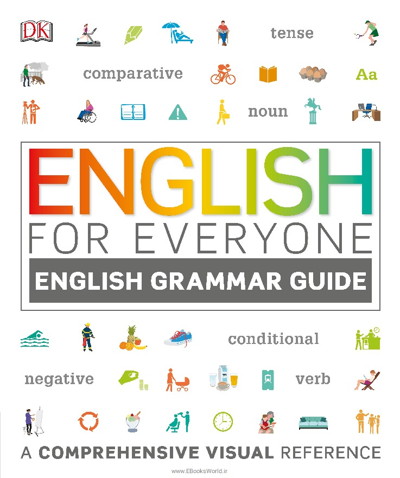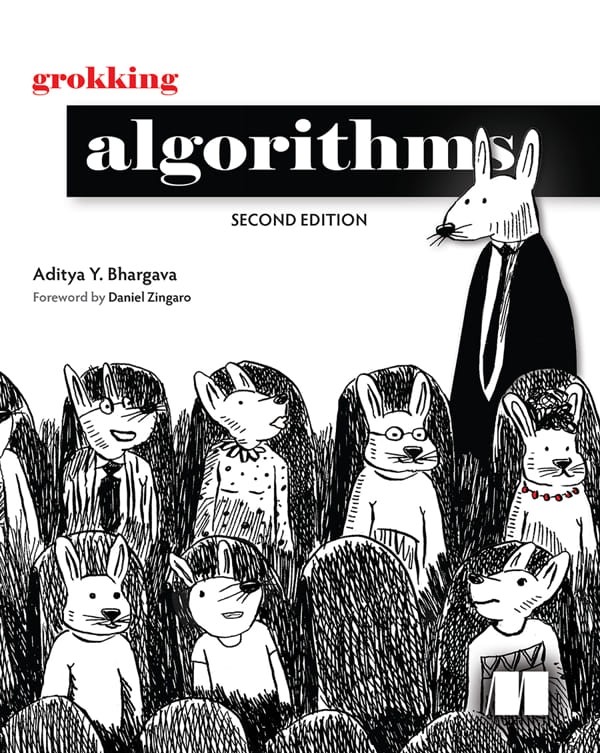ممکن است که همه ما به یک زبان صحبت کنیم، اما کنار آمدن با دستور زبان چالش نهایی است. شما ممکن است که تا الان توسط حروف اضافه گیج شده باشید، از صفات تفضیلی متحیر شده باشید، و به خاطر افعال کمکی وجهی قاطی کرده باشید. خوشبختانه، این کتاب آموزشی بصری برای تمامی چیزها در زبان انگلیسی است که با قالبی مختصر و مفید و واضح برای درک آسان، به شما مطالب را یاد میدهد.
در کتاب «انگلیسی برای همه: راهنمای گرامر انگلیسی»، قوانین گرامر انگلیسی به زیبایی با تصاویر چشم نواز، گرافیکهای گام به گام و توضیحات ساده برای کمک به شما در یادگیری گرامر زبان انگلیسی، ارائه شده اند. راهنمای دستور زبان انگلیسی برای زبان آموزان انگلیسی در تمام سطوح، از جمله انگلیسی زبانان با تجربه که به دنبال خلاصه ای از نکات کلیدی زبان هستند، کتاب English Grammar Guide، دستور زبان متوسط و پیشرفته را پوشش میدهد.
وقتی صحبت از زبان انگلیسی میشود، هیچ کاری باقی نمانده است که انجام نشده باشد. انواع مسائل حل شده اند: از جمله زمانهای فعل، فعل ها، قید ها، بند ها، صفات عالی و سوالات. به شما توصیه میشود الگوها و توالیها را در زبان مشاهده کنید تا شباهتها را ببینید و درک بیشتری پیدا کنید. پس از تلاش کردن، با طیف وسیعی از تمرینات گفتاری، خواندن و نوشتن خود را امتحان کنید تا ببینید که چقدر پیشرفت کرده اید. این راهنمای گرامر ضروری بخشی از سری DK انگلیسی برای همه است که یک دوره خود آموز هیجان انگیز و آموزشی برای ایجاد اعتماد به نفس و تسلط است. اگر میخواهید که گرامر زبان انگلیسی خود را برای مدرسه، تحصیل، امتحانات (از جمله TOEFL و IELTS)، کار یا مسافرت بهبود ببخشید، این یک همراه عالی برای مطالعه است.
Table of Contents:
- The present simple
- The present simple negative
- Present simple questions
- The present continuous
- Present tenses overview
- Imperatives
- The past simple
- The past simple negative
- Past simple questions
- The past continuous
- The present perfect simple
- The present perfect continuous
- The past perfect simple
- The past perfect continuous
- “Used to” and “would”
- Past tenses overview
- The future with “going to”
- The future with “will”
- The present for future events
- The future continuous
- The future perfect
- The future in the past
- Future overview
- The passive
- The passive in the past
- The passive in the future
- The passive with modals
- Other passive constructions
- Conditional sentences
- Other conditional sentences
- Conditional sentences overview
- Future possibilities
- Wishes and regrets
- Forming questions
- Question words
- Open questions
- Object and subject questions
- Indirect questions
- Question tags
- Short questions
- Short answers
- Questions overview
- Reported speech
- Tenses in reported speech
- Reporting verbs
- Reported speech with negatives
- Reported questions
- Reported speech overview
- Types of verbs
- Action and state verbs
- Infinitives and participles
- Verb patterns
- Verb patterns with objects
- Verb patterns with prepositions
- Phrasal verbs
- Modal verbs
- Ability
- Permission, requests, and offers
- Suggestions and advice
- Obligations
- Making deductions
- Possibility
- Articles
- Articles overview
- “This / that / these / those”
- “No / none”
- “Each / every”
- “Either / neither / both”
- Singular and plural nouns
- Countable and uncountable nouns
- Subject-verb agreement
- Abstract and concrete nouns
- Compound nouns
- Numbers
- Quantity
- Approximate quantity
- Personal pronouns
- Reflexive pronouns
- Indefinite pronouns
- Possession
- Defining relative clauses
- Non-defining relative clauses
- Other relative structures
- Question words with “-ever”
- “There”
- Introductory “it”
- Shifting focus
- Inversion
- Ellipsis
- Shortening infinitives
- Substitution
- Adjectives
- Gradable and non-gradable adjectives
- Comparative adjectives
- Two comparatives together
- “As... as” comparisons
- Superlative adjectives
- Adverbs of manner
- Comparative and superlative adverbs
- Adverbs of degree
- Adverbs of time
- Adverbs of frequency
- “So” and “such”
- “Enough” and “too”
- Prepositions
- Prepositions of place
- Prepositions of time
- Other prepositions
- Dependent prepositions
- Coordinating conjunctions
- Subordinating conjunctions
- More linking words
- Linking words overview
- Prefixes
- Suffixes
- Easily confused phrases
- Sequencing and organizing
- Correcting and changing the subject
- Deciding and hedging
- Making conversation

 می پسندم
می پسندم
 به درد نمی خوره
به درد نمی خوره
















